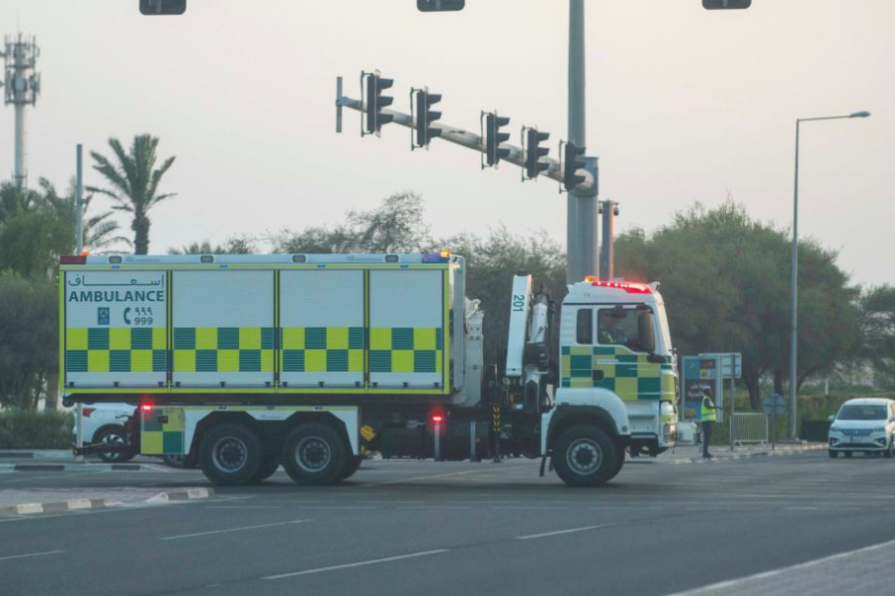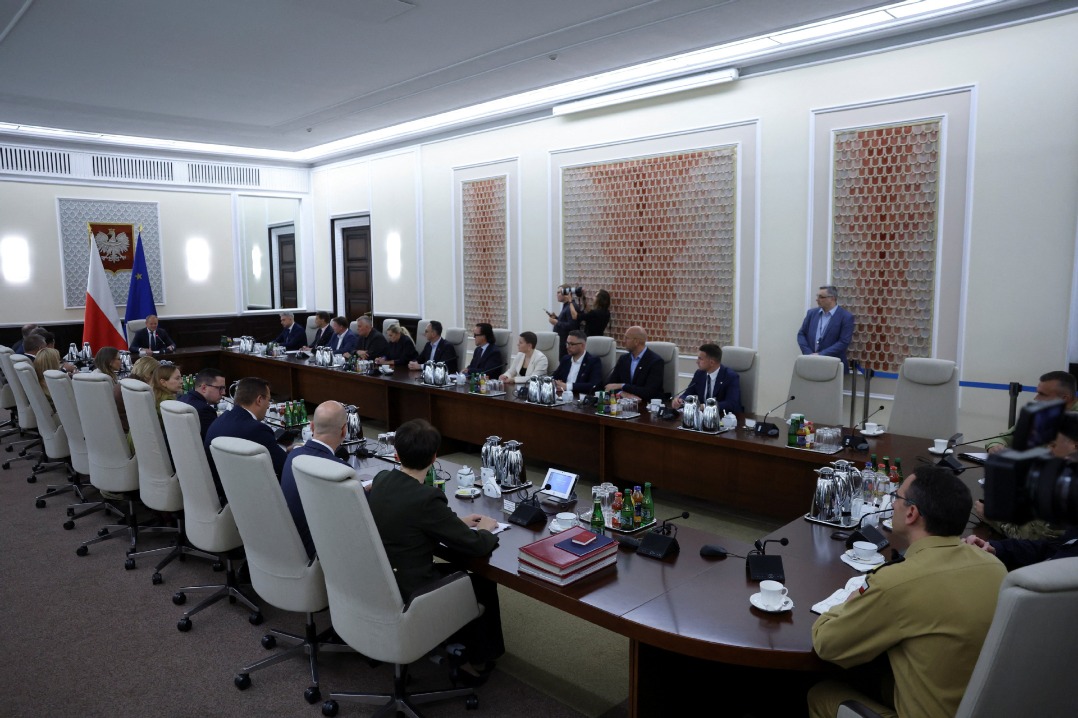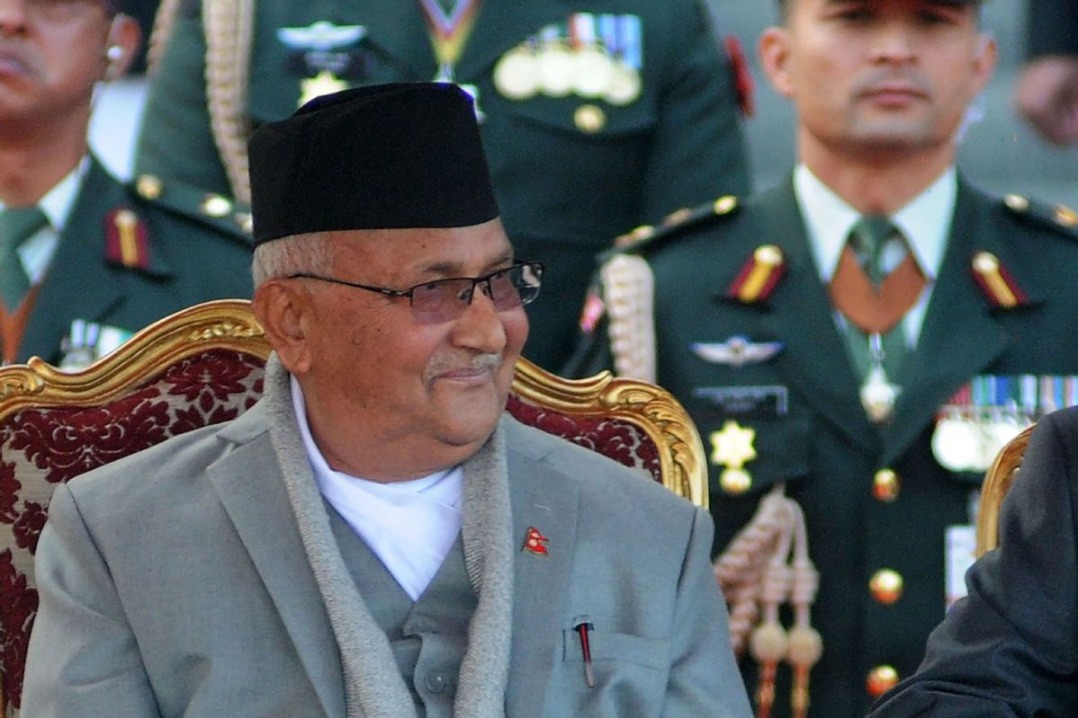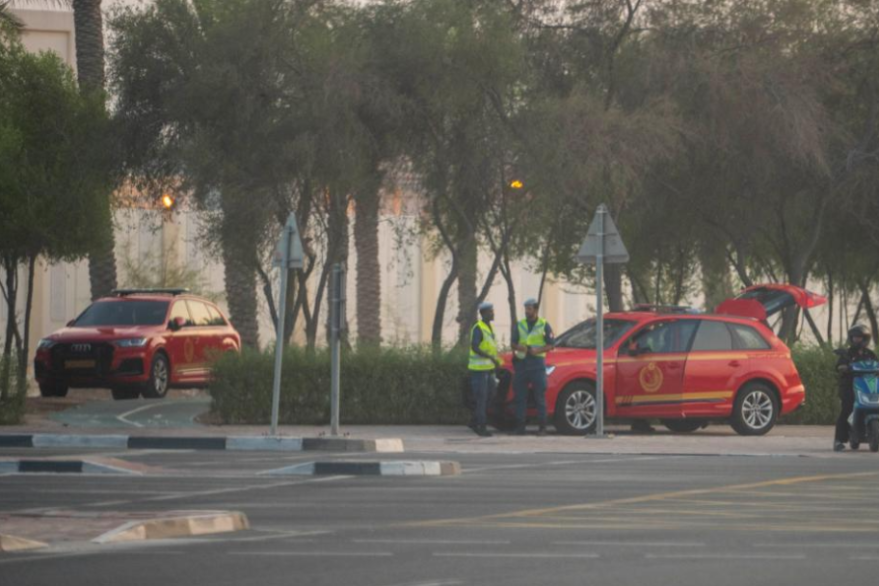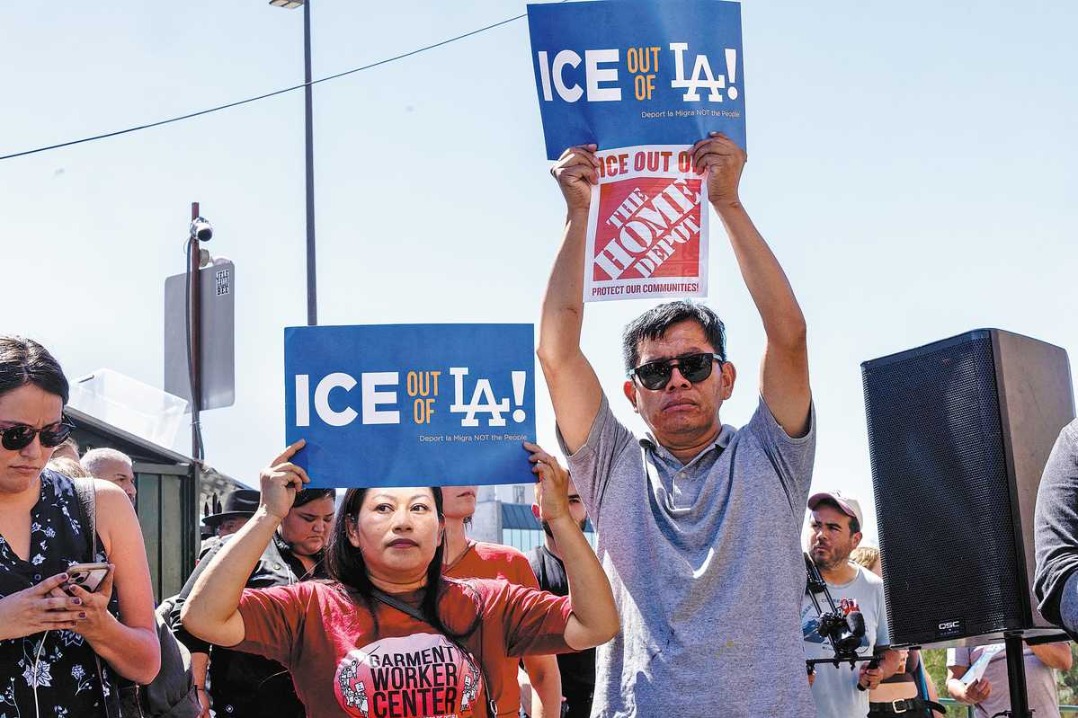EU chief slams Israel, defends US trade deal
Von der Leyen also outlines sanctions on Russia in her major annual address

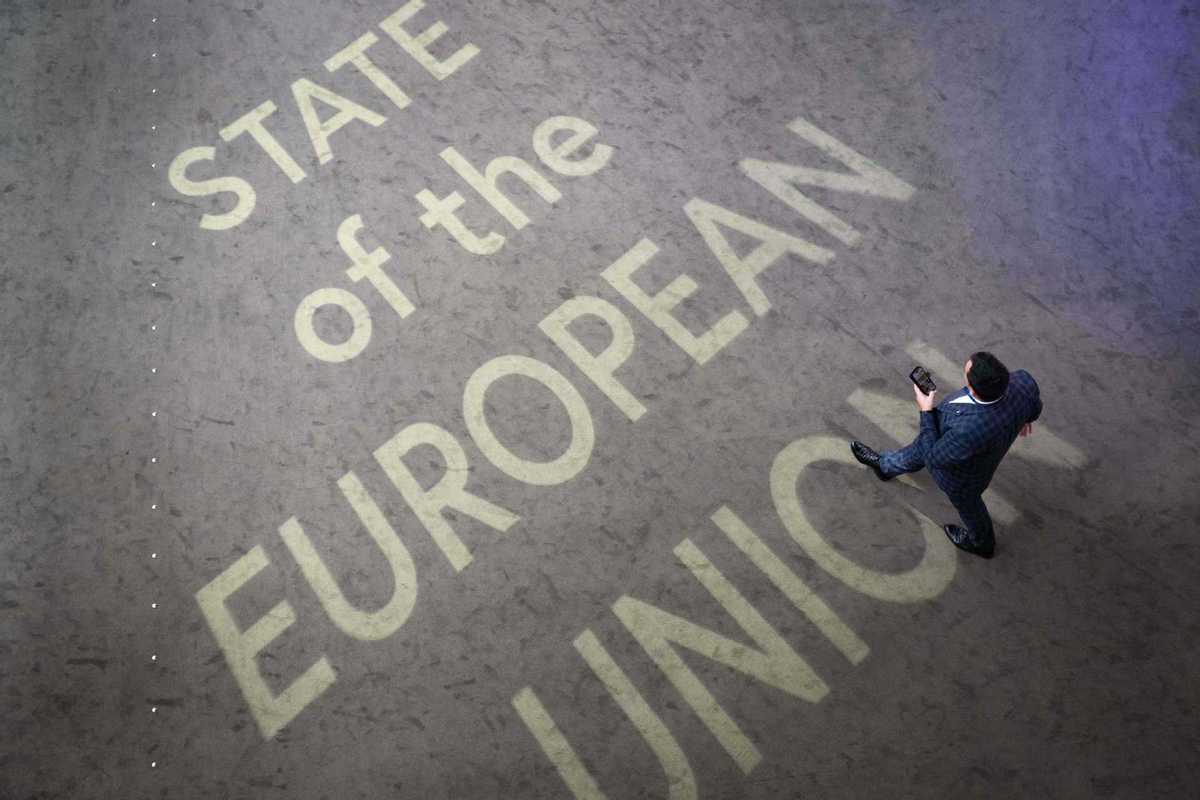
The leader of the European Union criticized Israel on Wednesday in the strongest comments to come out of the bloc since the crisis in Gaza began.
European Commission President Ursula von der Leyen said in Strasbourg, France, during her annual State of the European Union speech that what is happening in Gaza "has shaken the conscience of the world".
"Man-made famine can never be a weapon of war. For the sake of the children, for the sake of humanity, this must stop," she told EU lawmakers in her address, which included a summary of the bloc's achievements during the past 12 months, and its plans for the future.
While stopping short of describing Israel's actions in Gaza as genocide, she drew loud applause when she told lawmakers at the European Parliament that the starvation of Palestinians must end.
Von der Leyen added that the EU will set up a fund called the Palestine Donor Group, which will support the reconstruction of Gaza. And the bloc will start putting sanctions on what she called Israel's "extremist ministers".
It will also partially suspend the EU-Israel Association Agreement on trade-related matters, she said, although she did not provide details about which elements of bilateral trade would be affected.
The EU is Israel's biggest trading partner, accounting for 32 percent of Israel's total trade in goods last year, and 28.8 percent of the country's exports went to the EU.
Acknowledging the 27-nation bloc is deeply divided on how to respond to Israel's actions in Gaza, von der Leyen said: "I am aware it will be difficult to find majorities, and I know that any action will be too much for some, too little for others. But we must all take our own responsibilities."
Frozen assets
Von der Leyen also used her speech to suggest that frozen Russian assets under the EU's control could be used for a "reparations loan "for Ukraine, to help with its survival in the short term and its rebuilding after the end of the Russia-Ukraine conflict.
She said the country is facing an estimated 8-billion-euro ($9.37 billion) budget shortfall next year and that additional funds will be required for many years to come.
"Ukraine will only pay back the loan once Russia pays for the reparations," she said. "The money will help Ukraine already today."
The bloc is also preparing to impose new sanctions on Moscow, she added.
One of the other main points during her speech was the trade deal struck by the EU and the United States in late July, which has triggered an avalanche of criticism within the bloc.
Von der Leyen insisted that the bloc secured the best possible trade deal in its recent negotiations with the US, and that the agreement ensures the EU's enterprises have an advantage over many rivals.
"We ensured that Europe got the best possible deal out there," she told lawmakers. "We have put our companies at a relative advantage because some of our direct competitors face much higher US tariffs."
The deal, which calls for the EU to lower most of its tariffs on US imports to zero while EU products are subject to a 15 percent tariff in the US, will be voted on in the European Parliament in the coming weeks.
"The deal provides crucial stability in our relations with the US at a time of grave global insecurity," von der Leyen said. "Think of the repercussions of a full-fledged trade war with the US. Picture the chaos."
However, as other members of the European Parliament continued to take the floor after von der Leyen's speech, the EU-US trade deal remained a harshly criticized topic because of the lopsided terms included in the agreement, which some describe as a capitulation for the bloc.
Green members of the European Parliament are particularly outraged by the pledge to spend $750 billion on US gas, oil and nuclear fuels by the end of 2028.
















